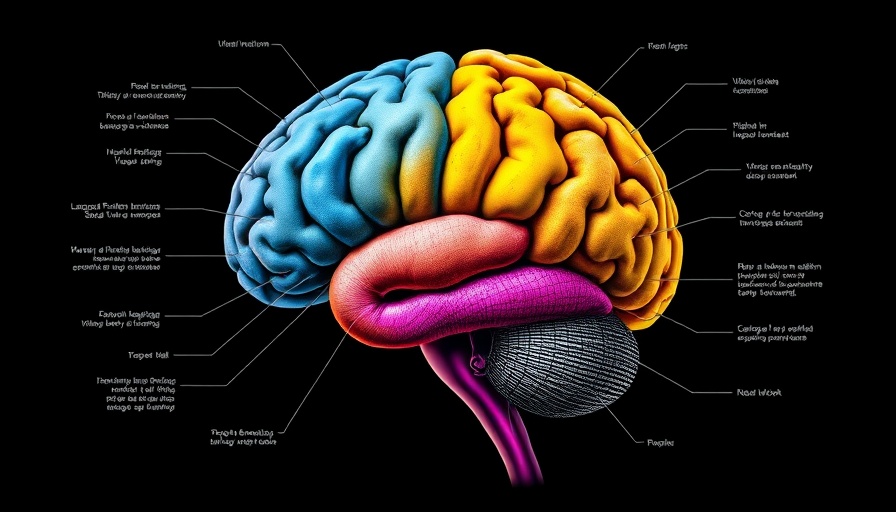
Understanding the Brain's Connection to Object Knowledge
A recent groundbreaking study published in PLOS Biology elucidates a critical connection between vision and language in the human brain, showcasing how these two regions collaborate to shape our knowledge of objects. Conducted by Bo Liu and colleagues from Beijing Normal University, researchers engaged with stroke patients to uncover unique insights into how the brain processes information about familiar objects, revealing implications for both cognitive science and rehabilitation strategies.
The Role of Vision and Language in Cognitive Processing
The study highlights a corridor of neural interaction that exists between the visual and language-processing areas of the brain. Specifically, the ventral occipitotemporal cortex (VOTC) and dorsal anterior temporal lobe (ATL) play pivotal roles. Seeing a familiar object like a banana engages the VOTC, activating visualization and color recognition. Concurrently, knowledge about the object—its typical color and associated language—also awakens activation in the ATL.
Stroke Patients Offer Unique Insights into Neural Pathways
Utilizing fMRI technology, Liu’s research team compared 33 stroke patients to 35 controls, meticulously examining their ability to identify object colors. The results were striking: patients with stronger neural connections between their language and visual processing regions exhibited superior object color recognition. This correlation underscores how disrupted communication between these brain areas can impair both cognitive functions and behavioral responses to visual stimuli—a revelation that may inform therapeutic approaches for individuals recovering from strokes.
Implications for Health and Wellness
Understanding the intricate connection between vision and language processing is crucial for enhancing cognitive rehabilitation strategies for stroke patients and others with similar brain injuries. By bolstering interventions through focus on these neuroconnections, health and wellness professionals can foster better treatment outcomes and accelerate recovery processes.
Bridging Theory with Practice in Cognitive Health
These findings are not just academic—they have real-world implications for improving health and wellness. For example, practitioners in the realm of brain health, particularly those based in areas like San Antonio, could utilize information about the brain's functionality to develop targeted therapies that promote recovery and enhance cognitive skills in affected individuals.
Exploring Future Trends in Cognitive Rehabilitation
Looking ahead, the evolving understanding of cognitive connections will likely inspire innovations in treatments. Enhancements in neurotherapies, potentially integrating technologies such as virtual reality to simulate interactions between visual and language pathways could lead to more tailored cognitive rehabilitation programs.
The Critical Role of Community Collaboration in Stroke Recovery
Community health and wellness centers, including those in urban settings, should harness this knowledge to build programs that promote not only physical recovery but also cognitive engagement. Events, workshops, and resources geared towards understanding brain health will empower families and patients to actively participate in their recovery process, ultimately leading to a more holistic approach to wellness.
Conclusion: The Future of Brain Health is Interconnected
As we glean valuable insights from this study, it's vital for healthcare professionals, researchers, and community centers to continue employing collaborative strategies that emphasize the interconnectedness of cognitive functions. Improving our understanding of how vision and language intersect opens pathways for innovative treatments and refined quality of life for those impacted by cognitive impairments.
To foster a deeper awareness and proactive approach towards cognitive health, join community health events and initiatives that focus on brain wellness. Together, we can shape a future where everyone utilizes their cognitive capabilities fully.
 Add Row
Add Row  Add
Add 




 Add Row
Add Row  Add
Add 


Write A Comment